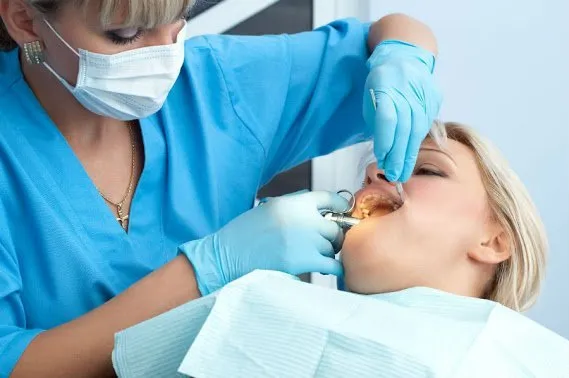When you think about losing teeth, you may picture a gap-toothed grin on a wide-eyed child who’s talking about the tooth fairy. For children, tooth loss allows for the permanent teeth to erupt properly.
But many adults experience tooth loss as well. As an adult contemplating tooth extraction, you may feel nervous or even embarrassed, so it’s
important to understand the causes of adult tooth loss, possible prevention and common types of tooth replacement.
In this blog, we list four facts about tooth extraction that can help you feel more prepared for this procedure.
1. Extractions Are Usually Performed by Specialists
While your primary dentist can identify whether or not a tooth requires extraction, he or she may refer you to a specialist for the procedure itself. If your dentist recommends tooth extraction, ask if you can receive the surgery in his or her office.
A specialist is more likely to be required if the procedure includes removal of an un-erupted or an impacted tooth.
It’s important to know who will be performing the procedure when you schedule your extraction since you will most likely need a ride home afterward due to the anaesthesia.
2. Extraction Can Occur for Several Reasons
Many adult patients assume that their teeth will only need to be extracted due to advanced decay. While extensive tooth decay can call for extraction of the affected tooth, you could require this procedure for other reasons as well, including some that are outside your direct control.
Other common reasons for adult tooth extraction include:
- Internal infection that compromises the pulp of the tooth
- Serious gum disease that causes teeth to shift or loosen
- Unrepairable damage such as a crack that extends to the root portion of the tooth
Your dentist will likely consider several other treatments before recommending extraction. For example, some tooth damage responds to fillings, crowns or root canal surgery.
3. Medical History Can Factor Into the Procedure
Tooth extraction generally does not constitute a major surgery except in extreme circumstances. However, this procedure is more involved than most dental other procedures you will undergo. Because extraction comes with more risk than the average procedure, your dentist will likely go over your medical history in advance.
Certain conditions and lifestyle choices can increase the risk of complications during the extraction and the recovery period. Inform your dentist if you have a history of any of the following:
- Conditions that suppress the immune system, like diabetes and HIV
- Congenital heart defects or heart valve procedures
- Liver disease and/or higher-than-average alcohol consumption
- Smoking or other tobacco use
- Surgery to place an artificial joint
- Use of medication that causes dry mouth or other oral symptoms
This history does not necessarily rule out the option of extraction, but you may need to undergo more steps before the extraction can be scheduled.
4. Several Tooth Replacement Options Are Available After Extraction
Once a tooth has been removed, you will most likely want to replace the natural tooth with an artificial alternative. Not only can tooth replacement restore your smile, but prompt replacement can reduce your risk of infection and other complications after an extraction.
Depending on the location of your extraction site and the number of teeth removed you may be eligible for implants, a dental bridge, partial dentures or another tooth replacement appliance.
If you have more questions about adult tooth extraction and how this procedure may apply to you, discuss your situation with your dentist.
At Dental Smile Clinic, we offer several types of tooth replacement to help our patients who must deal with tooth extraction and want to restore the beauty of their smiles.




